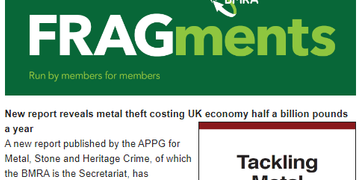Following the announcement that inflation has risen to 6.2 percent, its highest in three decades, the Chancellor took to the despatch box to deliver his Spring Statement.
In his opening remarks, the Chancellor focused on the theme of security amid the unravelling crisis in Ukraine. Here, Mr Sunak asserted that we have a moral responsibility to use our economic strength to stand up against Russian aggression and reiterated the Government’s support for Ukraine.
The Chancellor referenced the international crisis, alongside global inflation and supply chain challenges as he announced the OBR’’s forecast for the coming year. Here, although the UK economy did exceed the forecasted growth last year, the growth figure for 2022 has been revised down to 3.8 percent. Additionally, inflation is now expected to rise to 7.4 percent this year.
Where Mr Sunak’s Autumn Budget promised billions in public spending in the wake of COVID-19, his Statement reflected a new approach to managing public finances, characterised by a continued determination to balance the books. As such, despite announcing that he now expects to achieve this target by 2024, there was little certainty on how public funds will be released. The Treasury will pay £83 billion in debt interest payments in 2022-2023. This would appear to be the Treasury’s pretext for not splashing the cash.
During his Statement, the Chancellor unveiled his new tax plan for the UK, defined by three core objectives of helping people with the cost of living; creating the conditions for private sector-led growth; and sharing the proceeds of growth fairly. Here, the key takeaways included an increase to the National Insurance Primary Threshold; a five pence cut to fuel duty; reform to business taxes; as well as a reduction in the basic rate of income tax from 2024, pointing towards a general election that same year.
The rise in National Insurance Contributions, which is set to come into force from April, will go ahead despite facing increasing criticism from both sides of the House. On this, Mr Sunak reassured his audience that every penny collected from this levy will go directly to the NHS and emphasised the need to support the NHS and social care.
Further details on the announcements made yesterday can be read below.
Top Five Spring Statement Announcements
- Basic rate of income tax will go from 20 percent to 19 percent by the end of Parliament in 2024
- Fuel duty will be cut by five pence from 18:00 on 23rd March. This will remain in place for 12 months, lasting until March next year
- The income threshold at which point people start paying National Insurance will rise to £12,570 in July, representing a tax cut for employees of more than £330 a year
- Government will be extending the VAT relief for the installation of energy-saving materials. For the next five years, homeowners installing ESMs such as solar panels, heat pumps or insulation will pay zero VAT
- The Employment Allowance, which gives relief to smaller businesses' National Insurance payments, will increase from £4,000 to £5,000 from April.
Tax changes
- In 2022-23, the business rates multiplier will be frozen
- Eligible retail, hospitality and leisure businesses will also benefit from a new temporary 50 percent Business Rates Relief worth £1.7 billion
- The temporary £1 million level increase from £200,000 of Annual Investment Allowance has been extended to 31 March 2023
- From April 2022, eligible employers will be able to reduce their employer National Insurance Contributions (NICs) by up to £5,000 per year – a tax cut worth up to £1,000 per employer
- From April 2022, self-employed individuals with profits between the Small Profits Threshold and Lower Profits Limit will continue to build up National Insurance credits but will not pay any Class 2 NICs
Research, Business and Industry
- A commitment to invest £20 billion per year in R&D by 2024-2025
- The Government announced tax reforms for R&D, whereby all cloud computing costs associated with R&D, including storage, will qualify for relief from April 2023
- The Government is committed to re-examining the way in which the Apprenticeship Levy works to better benefit employers and apprentices alike.
Energy and Environment
- A temporary 12-month cut will be introduced to duty on petrol and diesel of five pence per litre
- Government is introducing targeted business rates exemptions for eligible plant and machinery used in onsite renewable energy generation and storage, and a 100 percent relief for eligible low-carbon heat networks with their own rates bill. These measures will now take effect from April 2022
- The Government is expanding the Energy Company Obligation to £1 billion per year for 2022-2026, requiring energy suppliers to improve the energy efficiency of low-income homes
- The Government is also developing private rental sector minimum efficiency standards
- From April 2022, the Government is extending the VAT relief available for the installation of energy saving materials (ESMs) such as heat pumps and solar panels:
- The Government will include additional technologies and remove the complex eligibility conditions, reversing a Court of Justice of the European Union ruling that restricted the application of the relief
- The Government will also increase the relief further by introducing a time-limited zero rate for the installation of ESMs
- The Northern Ireland Executive will receive a Barnett share of the value of this relief until it can be introduced UK-wide
- The Government is set to spend £45 million this year towards this policy, with spending increasing to £50 million in 2023-2004; £60 million in 2024-2025 and 2025-2026; and £65 million in 2026-2027



